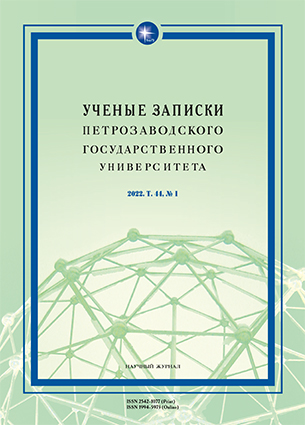ПОЭТОЛОГИЧЕСКИЕ ФУНКЦИИ АВТОРСКОЙ МОДАЛЬНОСТИ
В ХУДОЖЕСТВЕННОЙ ПРАКТИКЕ Ф. ФЮМАНА И Б. ШЛИНКА
POETOLOGICAL FUNCTIONS OF AUTHORIAL MODALITY IN THE ARTISTIC PRACTICE
OF FRANZ FÜHMANN AND BERNHARD SCHLINK
Author(s): Tatiana Aleksandrovna SharypinaSubject(s): Language and Literature Studies
Published by: Петрозаводский государственный университет
Keywords: modality; subjective modality; fiction modality; fairy tale; myth; genre; existential situation; intermediality
Summary/Abstract: The paper for the fi rst time analyzes the poetological functions of authorial modality through the exampleof the works of Franz Fühmann and Bernhard Schlink in a comparative aspect. The relevance of the paper is confi rmedby its multidisciplinary focus and the problem of the communicative space of a literary text. The aim of the study is todiscover the main tendencies of authorial modality and its functioning in style formation based on a comparative analysisof the works of Fühmann and Schlink. The comparative and typological perspective proves that the originali ty of authorialmodality expression and its evolution in the creative practice of writers is determined by the strongly pronouncedpersonal background and individual experience of authors. Specifi cally, the withdrawal from the biased binarity of a fairytale in favour of the myth’s polysemy and the diff usion of canonical genres in Fühmann’s works opened new stylisticpossibilities for the ways of expressing authorial modality, while the choice of artistic devices, as well as the autho rialmodality of Schlink’s works were predefi ned by the axiological principles and priorities of Pro testantism which hadformed Schlink’s personality in his childhood and then found a certain legal basis in his mentality as a lawyer. It explainsthe diff erence in the attitude to the phenomenon of the Word between Fühmann who doubted its eff ectiveness and appealedto the emotional universality of dance at the end of his career and Schlink whose novels are marked by the use ofartistic and photographic ekphrasis, which is widening his narrative technics. Despite all the diff eren ces in the origins ofspiritual experience and life peripeteia, the intermedial discourse which fi nds its expression in the mature creative practiceof Fühmann and Schlink becomes a way of comprehending “eternal” questions of existence.
Journal: Ученые записки Петрозаводского государственного университета
- Issue Year: 44/2022
- Issue No: 1
- Page Range: 81-88
- Page Count: 8
- Language: Russian

